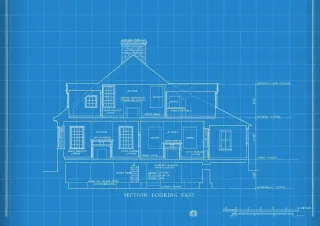What Is a Construction Company?
Construction companies build and fix things like buildings, bridges, and roads. They handle all parts of the job, from planning to making sure it’s safe. Some companies are small and do specific jobs, while others are big and work on huge projects all over the world. They also help with things like planning and engineering.
Core Functions of a Construction Company
1. Project Planning and Design
Before any physical work begins, a construction company is involved in planning and design. This stage includes:
-
Conducting feasibility studies
-
Creating architectural and engineering designs
-
Preparing cost estimates and budgets
-
Securing necessary permits and approvals
Some construction companies have in-house architects and engineers, while others collaborate with independent firms to design projects according to client specifications and regulatory standards.
2. Project Management
Effective project management is essential to ensure that construction projects are completed on time and within budget. Construction companies oversee:
-
Scheduling work phases and managing timelines
-
Allocating resources efficiently
-
Coordinating subcontractors and suppliers
-
Monitoring progress and addressing any delays or obstacles
Project managers play a critical role in ensuring that all aspects of the construction process run smoothly.
3. Procurement and Material Management
Construction projects require a vast range of materials, from concrete and steel to electrical and plumbing components. A construction company is responsible for:
-
Sourcing and purchasing high-quality materials
-
Managing logistics and transportation
-
Ensuring cost-effective procurement without compromising quality
Proper material management minimizes waste and keeps projects within budget.
4. Construction and Execution
The actual building phase involves a wide range of activities, including:
-
Site preparation and foundation work
-
Structural framing and roofing
-
Electrical, plumbing, and HVAC installations
-
Finishing work such as painting, flooring, and landscaping
Skilled laborers, including carpenters, electricians, masons, and machine operators, work under the supervision of engineers and site managers to bring architectural designs to life.
5. Quality Control and Safety Compliance
Construction companies must ensure that projects meet industry standards and comply with safety regulations. This includes:
-
Conducting regular quality inspections
-
Adhering to building codes and regulations
-
Implementing worker safety protocols
-
Conducting risk assessments and hazard mitigation
Strict quality control measures help prevent structural failures and ensure durability and longevity.
6. Post-Construction Services
Once construction is complete, companies often provide additional services such as:
-
Final inspections and compliance checks
-
Cleaning and site restoration
-
Maintenance and warranty services
This phase ensures that the client receives a fully functional and safe structure.
Key Sectors of the Construction Industry
The construction industry is divided into multiple sectors, each serving a unique purpose. Below are the main sectors in which construction companies operate.
1. Residential Construction
Residential construction focuses on building homes and housing complexes. This sector includes:
-
Single-family homes
-
Apartments and condominiums
-
Townhouses and duplexes
Developers, homebuilders, and general contractors manage residential projects, often working with real estate firms and architects.
2. Commercial Construction
This sector deals with constructing buildings for business and commercial use, such as:
-
Office buildings
-
Shopping malls and retail stores
-
Hotels and restaurants
Commercial projects are usually larger in scale and require extensive planning, regulatory approvals, and design considerations to meet business needs.
3. Industrial Construction
Industrial construction is focused on large-scale facilities used for manufacturing, processing, and logistics. These projects include:
-
Factories and warehouses
-
Power plants
-
Oil refineries and chemical plants
Because industrial projects involve complex machinery and heavy-duty infrastructure, they require specialized construction expertise.
4. Infrastructure and Heavy Civil Construction
This sector involves building essential public infrastructure, including:
-
Roads, highways, and bridges
-
Railways and airports
-
Water supply and sewage systems
Governments and municipal authorities often contract large construction firms to manage these projects, which are crucial for economic and societal development.
5. Environmental and Sustainable Construction
As environmental concerns grow, many construction companies specialize in eco-friendly projects, including:
-
Green buildings with energy-efficient designs
-
Renewable energy infrastructure (solar farms, wind turbines)
-
Waste management and water treatment facilities
Sustainable construction practices help reduce carbon footprints and promote long-term ecological balance.
6. Institutional and Governmental Construction
This sector includes the construction of buildings for public services and institutions, such as:
-
Schools and universities
-
Hospitals and healthcare facilities
-
Government offices and military bases
Public funding and government contracts typically drive this sector, requiring strict adherence to regulatory and compliance standards.
Types of Construction Companies
Construction companies vary in size, expertise, and specialization. The main types include:
1. General Contractors
General contractors oversee all aspects of a construction project, from planning to execution. They hire subcontractors, procure materials, and manage schedules.
2. Subcontractors
Subcontractors specialize in specific tasks, such as plumbing, electrical work, roofing, or carpentry. They work under the supervision of general contractors.
3. Real Estate Developers
Developers purchase land, secure financing, and manage large-scale residential or commercial projects. They often hire construction firms to execute their plans.
4. Engineering and Design Firms
These companies focus on designing and planning construction projects, providing architectural and engineering expertise.
5. Construction Management Companies
These firms oversee construction projects on behalf of clients, ensuring compliance, quality, and cost control.
Challenges Faced by Construction Companies
Despite its importance, the construction industry faces several challenges, including:
1. Labor Shortages
The industry often struggles with a shortage of skilled workers, impacting project timelines and costs.
2. Rising Material Costs
Fluctuations in material prices can affect profitability and project feasibility.
3. Regulatory Compliance
Construction firms must adhere to complex building codes, environmental laws, and safety regulations.
4. Technological Advancements
Adopting new technologies, such as Building Information Modeling (BIM) and automation, requires significant investment.
5. Project Delays and Budget Overruns
Unforeseen circumstances, such as weather conditions and supply chain disruptions, can cause costly delays.
Talent Traction: Empowering Construction Companies with the Right Workforce
The construction industry is the backbone of global infrastructure, but behind every successful project is a skilled and reliable workforce. Finding and retaining top talent is one of the biggest challenges construction companies face, impacting timelines, project quality, and profitability. That’s where Talent Traction comes in.
How Talent Traction Supports the Construction Industry
At Talent Traction, we specialise in helping construction companies attract, hire, and retain top talent, ensuring that every project runs smoothly from start to finish. Whether you’re a general contractor, engineering firm, or real estate developer, having the right people in place is crucial for success.
Here’s how we support construction firms:
✔ Filling Skills Gaps Quickly – Labour shortages can slow down progress. We connect you with qualified professionals, from site managers and engineers to skilled tradespeople.
✔ Reducing Hiring Time & Costs – We streamline the recruitment process, matching top talent to your specific project needs and cutting down costly delays.
✔ Industry-Specific Recruitment Strategies – We understand the unique demands of the construction sector, ensuring you get candidates with the right experience, certifications, and safety training.
✔ Building a Workforce for the Future – With advancements in technology and sustainability, we help construction firms adapt by recruiting professionals skilled in modern construction techniques.
Need help finding top construction talent? Let’s build success together—get in touch with Talent Traction today.




